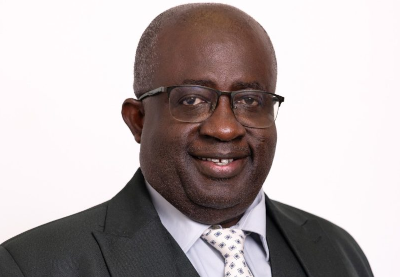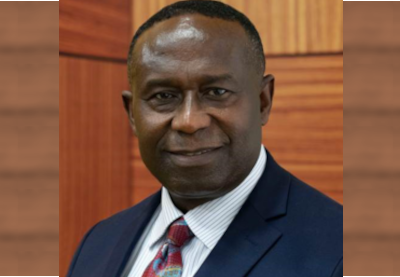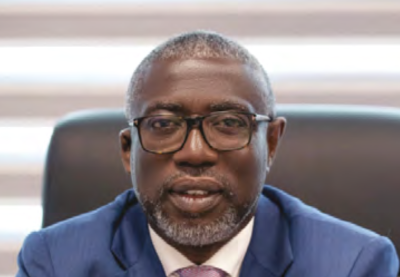Top Guide: What underpins the World Bank’s findings that Ghana is the best place in West Africa to do business, and what are the regional political or social-economic factors making it the most resilient economy in the region?
Mr. R. Yofi Grant: The World Bank’s recognition is based on the major structural reforms by the government to meet business needs and global challenges. Some of these have greatly improved the start-up ecology in the country. We have boosted the ease of doing business, addressed the issues around licensing permits, tax payments and ease of redundancy, among others. We also have a comprehensive programme of digitalisation.
To give some examples of our work, in 2017, the paperless port system was implemented at Ghana’s main ports by the Ghana Revenue Authority (GRA) together with GCNet and West Blue Consulting, following a pilot. The paperless port system has many features used by various stakeholders, including customs, clearing agents/importers, and port authorities. We also have the National Digital Addressing System which provides an address system using unique postal codes for every property within Ghana. The system allows for the easy location of addresses within the country, which is key to the development of Ghana’s e-commerce market.
Then there is the biometric National ID Card, or the Ghana Card which serves as the ‘Central Ner-
vous System’ of Ghana’s digitalisation process by providing a comprehensive identification system that enables efficient delivery of public services and supports government initiatives such as social protection programmes.
We have implemented mobile money interoperability that allows seamless transactions between different mobile money platforms in Ghana, enabling users to send and receive money across different networks, promoting financial inclusion and convenience for individuals and businesses. We have the ghana.gov portal, a one-stop shop for government services, offering a centralised platform where citizens can access a wide range of government services and information online, simplifying the process and reducing the need for multiple visits to different government offices. The digitisation of the business registration process in Ghana simplifies and accelerates the registration of businesses, enabling entrepreneurs to start and operate their businesses more efficiently. This promotes a favourable business environment, stimulates economic growth, and attracts investment.
The implementation of the e-justice system in Ghana aims to improve judicial service delivery by leveraging digital technology. This system facilitates electronic filing, case management, and access to legal information, making the justice system more efficient, transparent, and accessible to all citizens. In Ghana, we have guarantees against expropriation and allow the repatriation of dividends and profits after tax. Companies are able, under the GIPC Act 865, to negotiate specific incentive packages in addition to the incentives and benefits available under various legislations. We are also home to the Port of Tema, which is centrally located in West Africa and has been upgraded to handle 3.5 million TEUs. As an emerging economy playing a central role in Africa’s free trade area agreement and hosting its secretariat, Ghana is in pole position to work with potential investors and make it easier for them to access products and services from a market of 1.3 billion people across Africa. The presence of the AfCFTA Secretariat in Ghana positions the country as a hub for intra-African trade and investment. Hosting the secretariat here creates economic opportunities, stimulates business growth, and attracts foreign direct investment (FDI) from member states benefiting from the increased trade flows, enhanced market access, and expanded export opportunities within the continent.
I believe the stability of our political system and our democratic compliance was a factor in the World Bank’s assessment.
TG: What are the current prospects for foreign investors given the relatively unstable economic situation in the country at present? How important do you think the IMF agreement is in this respect, and how do you think the international business community can be reassured about the outcome?
Mr. YG: Ghana’s prospects are still very good. The country’s GDP growth rate for 2022 was 3.1%. The country began the year with inflation as high as 54.1%; currently, the rate is down to 45.4% and it is projected in the IMF’s April 2023 World Economic Outlook report to reduce to 29.4% by the end of 2023. The World Economic Outlook’s medium term projections estimate Ghana’s inflation rate to be 8% by 2026. Regarding the IMF agreement, their approval of a $3 billion loan for Ghana is a significant development for the country. The immediate disbursement of about $600 million will provide much-needed support to tackle the economic challenges we are facing.
The programme we have agreed is designed to restore macroeconomic stability, address debt sustainability, and implement crucial reforms to build resilience and foster stronger and more inclusive growth. We understand the importance of stabilising our economy and ensuring long-term sustainability. It also signals the international community’s confidence in our country’s potential and commitment to addressing our economic concerns.
TG: What has been the impact of the African Continental Free Trade Area (AfCFTA) implementation on FDI so far and where do you see it going?
Mr. YG: The implementation of the AfCFTA aims to boost intra-African trade, attract higher levels of FDI, facilitate economic diversification, contribute to job creation and economic growth, support SME integration, and drive infrastructure development for increased trade flows and regional connectivity. It promotes the harmonisation of investment policies and regulations, facilitated by the comprehensive AfCFTA Protocol on Investment. This protocol covers various aspects of investment, such as protection, promotion, facilitation, and dispute settlement. Its implementation is expected to promote investment flows within Africa, protect foreign direct investment, and contribute to economic growth and development on the continent. The Protocol was concluded in October 2022, adopted by the AfCFTA Council of Ministers, and the Pan African Trade and Investment Agency (PATIA) was established to promote investment in Africa. Successful implementation will require the commitment and cooperation of all African countries and their respective investment promotion agencies (IPAs). In Ghana, examples of prominent companies that have demonstrated the potential to engage in trade and investment activities under the AfCFTA based on their previous activities include Dangote Cement Ghana, FanMilk Ghana Ltd and Kasapreko Company Ltd. Renowned automobile manufacturers like Volkswagen (VW), Suzuki, and Sinotruk have also established assembly plants in Ghana with the aim of producing vehicles for the domestic, regional, and larger African markets, leveraging the potential market expansion and trade facilitation offered by the AfCFTA.
The implementation of AfCFTA not only impacts intra-African trade but also encourages intra-African investment inflows. By reducing trade barriers and harmonising investment policies, the agreement creates a favourable environment for cross-border investments within Africa. This promotes economic integration, facilitates regional value chain development, and attracts more investments, leading to increased economic growth and development on the continent. To make the most of AfCFTA calls for greater collaboration between investment promotion agencies, so the Ghana Investment Promotion Centre (GIPC) led the charge in organising the first edition of the Annual Assembly of African IPAs (AIPA) dialogue in January 2023 to deliberate on the role of IPAs in facilitating the growing intra-African trade.
TG: As the largest gold-producing country in Africa and the second-largest cocoa producer in the world, what measures towards ecologically sound mining have been implemented?
Mr. YG: The government of Ghana is committed to promoting sustainable mining practices in Ghana and understands the importance of preserving our environment for future generations and ensuring that our mining activities do not have a negative impact on local communities. This mandate is overseen by the Environmental Protection Agency.
The government has implemented a number of measures to encourage ecologically sound mining. For example, we have created the Ghana Extractive Industries Transparency Initiative (GHEITI), which is responsible for ensuring that mining companies in Ghana comply with environmental regulations and disclose information about their operations.
Also, there is the Community Mining Program, launched in 2020 to promote responsible small-scale mining within mining communities. It aims to provide legal and regulated avenues for small-scale miners’ operations, while also ensuring environmental and social sustainability. The programme involves the allocation of specific mining sites to organised small-scale mining groups within communities. The government-led initiative, Multilateral Mining Integration Project, aimed at regulating and formalising small-scale mining activities, is another area of governmental interest. It focuses on streamlining the licensing and operational processes, providing training and capacitybuilding for small-scale miners, and promoting responsible mining practices. Moreover, the government’s cooperation with the private sector promoted the establishment of the Ghana Chamber of Mines, which promotes sustainable mining practices and encourages mining companies to adopt environmentally friendly technologies and practices.
The Chamber also facilitates regular stakeholder consultations to address environmental and social concerns. Overall, we believe that promoting ecologically sound mining practices is essential to ensuring the long-term sustainability of our mining sector and protecting our environment. We welcome foreign investment in this area and encourage mining companies to adopt sustainable practices and technologies that benefit both the environment and local communities.
TG: Thermal, solar and windmills have emerged as new reliable sources of power. What have been the most productive sources of investment for each, and how do you expect to encourage further such investment?
Mr. YG: First of all, thermal power is presently the most productive area of investment for electricity generation in Ghana. The country has abundant natural gas resources, which have been used to generate electricity through thermal power plants. Currently, about 69% of Ghana’s electricity generation is from thermal power sources with a total capacity of 5,499.1MW. Some of the most notable thermal power plants in Ghana include the Takoradi Thermal Power Plant, the Tema Thermal Power Complex, and the Sunon Asogli Power Plant. Nonetheless, government is keen on developing renewable
energy sources due to the country’s fast-growing energy demand and heavy reliance on fossil fuels for electricity generation.
Previously, Ghana was heavily reliant on the Akosombo dam for electricity, from the mid-1960s to the mid-1980s. However, changing rainfall patterns led to lower water levels, and thermal power sources were developed as alternatives. Currently, the government is pushing to increase solar power generation. The aim is to generate 10% of the country’s electricity from solar power by 2030. This is an ambitious target considering that excluding large hydro, less than 1% of the country’s electricity is currently generated from renewable sources. That notwithstanding, Ghana is committed to transitioning to more sustainable energy sources and making progress towards its renewable energy targets.
Ghana has seen a significant increase in investment in solar power in recent years. The country’s favourable weather conditions for solar power generation have attracted both local and foreign investors, encouraged by government policies and incentives. As a result, the number of solar power projects in Ghana has been increasing. For instance, in 2019, the country commissioned a 6.5MW solar power plant in the Upper West Region, which was one of the largest solar power plants in West Africa at the time. This was a significant milestone in the development of renewable energy in the region. Additionally, the government has introduced the net metering policy, which allows solar power users to sell excess power back to the grid, providing a further incentive for investment in the sector.
Wind power is still in its nascent stage in Ghana, but there have been some investments in this sector. Currently, there is only one operational wind farm in Ghana, which is located in the Volta Region and has a capacity of 225MW. The government is actively encouraging investment in wind power through various policies and incentives, such as the Renewable Energy Act and the establishment of the Renewable Energy Fund. To encourage further investment in these sectors, government has put in place several policies and incentives, such as tax holidays, exemptions, and duty-free imports of equipment. Additionally, the government is working to improve the regulatory framework for renewable energy investments to provide a conducive environment for investors.
TG: Are there lessons in ecological development and investment that Ghana has learned that it could convey beneficially to the rest of the continent?
Mr. YG: Yes, we have and I can think of a few examples. Ghana has leveraged public-private partnerships (PPPs) to drive ecological development and investment. Collaborations between government entities, private businesses, and international organisations have facilitated knowledge transfer,
technology sharing, and investment mobilisation in sectors like renewable energy, waste management, and sustainable agriculture. The government of Ghana, in partnership with private investors, has facilitated the development of renewable energy projects. One notable example is the Bui Power Authority, a PPP between the government and the Bui Power Company, which operates the Bui Hydroelectric Power Plant. The project has increased Ghana’s renewable energy capacity and reduced reliance on fossil fuel. Additionally, collaborations with other agencies and development partners are essential for the GIPC to effectively promote investments, access technical assistance, strengthen policy frameworks, expand investment opportunities, and achieve sustainable economic growth for Ghana. By harnessing the power of partnerships, we can collectively drive progress and unlock the full potential of our nation. In collaboration with GIZ, we have established a Business Development Unit which has enhanced our capacity to build a pipeline of SDG-aligned and ecologically balanced projects for investors.
TG: Can you outline the parameters of poverty in Ghana that the GIPC is trying to address?
Mr. YG: Investments and indeed, private investment-led growth is a significant predictor of poverty reduction. Therefore, seeing to an increasingly improving business environment and attracting investments is key to addressing poverty in the country. By attracting foreign investors and promoting domestic investment, we can create more job opportunities, increase productivity, and ultimately reduce poverty levels.
The Ghana Investment Promotion Centre (GIPC), operating under the Office of the President, is Ghana’s primary agency for attracting and promoting investments. Guided by the GIPC Act 2013 (Act 865), our mission is to facilitate valuable investments that drive economic growth, unlock opportunities, and generate employment. To foster collaboration between the private sector and government authorities for business improvement, we have been organising the GIPC CEO’s Breakfast Meetings every quarter. These meetings serve as a platform for advocating policies and reforms that enhance the business environment in Ghana, welcoming both local and foreign businesses. To identify investment prospects across various sectors in the country, the Centre conducts Regional Sensitisation Tours with support from the World Bank. These tours engage private businesses and highlight investment opportunities, subsequently matching interested investors with relevant projects.
In terms of achievements, the GIPC reported a notable FDI inflow of US$2.6 billion in 2022, along with the associated creation of 14,214 jobs, as well as 42 Technology Transfer Agreements (TTAs) over the past five years. Overall, the Ghana Investment Promotion Centre plays a vital role in attracting investments, facilitating economic growth, and promoting a favourable business environment in Ghana.















Comments